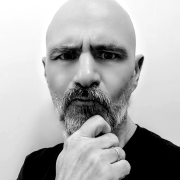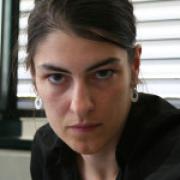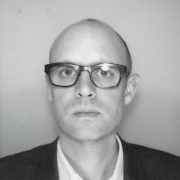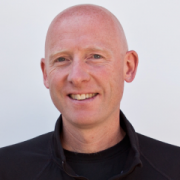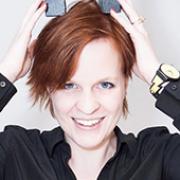The World Information Architecture Day 2015 Switzerland will take place at the Neue Zürcher Zeitung NZZ in Zürich. Join us for an afternoon full of insights from fabulous international and Swiss speakers. If you are new to Information Architecture or an experienced professional, we would love to meet you and share the ways Information Architecture makes a difference in our lives. There are 100 spots and participation is free.
Venue, parking and transit
The WIAD Zürich will take place in the Foyer of the NZZ Building right next to our beautiful opera at Bellvue.
Address: Neue Zürcher Zeitung, Falkenstrasse 11, 8008 Zürich
From Zürich Main Station take Tram 4 or 11 to «Opernhaus» (stops next to the venue) or the S-Bahn to «Bahnhof Stadelhofen» (3 minute walk)
The NZZ Foyer is wheelchair-accessible.
Program/Schedule
Opening Keynote - Making Places. Information Architecture in a post-digital world.
What happens when we all are co-creators, products become services, information is accessible and remediable on the move 24/7, and cyberspace is not some 3D simulation but a part of the world around us?
Presented by Andrea Resmini
Where is Wally’s Lab? plan.epfl.ch: Best IA Practices in Academic Context
14'000 people work and study on the vast EPFL campus made up of a series of randomly arranged buildings dating from 1978 to 2014. Finding places and people’s offices, as well as one's way back, is a huge challenge. This talk shows how by combining IA and IT skills we produced a killer web app for orientation on the campus.
Presented by Natalie Meystre
Coping with Complexity. How to Design for Large Amounts of Data
This talk is about the data driven design approach in prototyping – a content-first approach that aims at achieving a high level of data fidelity. Interactive prototypes rely heavily on great information architecture. Well designed content models help to create prototypes that allow to simulate and test workflows from start to end. A case study of an application for managing large scale events will be used to illustrate how data driven prototyping can make the difference between a good and a great prototype.
Presented by Memi Beltrame
Start with Information Architecture. Case Study of an Enterprise IA Project for FIFA
The world’s governing body for football, FIFA, produces a wide range of official documents including manuals, circulars, pamphlets, statutes, contracts and correspondence, to name a few. Managing, publishing and archiving this large collection of content in a variety of formats for a global audience is key to FIFA’s operations and communications strategy, but no simple task. This case study looks at an enterprise information architecture project completed for this large collection of official documents produced by FIFA since its inception over 100 years ago.
Presented by Adam Ungstad
Information Anatomy. Design for the Intangible E-Health Application
To build an overall architecture of a project with a developing scope can be challenging, especially if the requirements and framework conditions are not specified beforehand. On the basis of a project still in progress, this presentation shows an approach to build parts of an application by following a modular structure. Thus, tangible design solutions can be achieved even though the broader context is not known in detail.
Presented by Christoph Schmid
The Architecture of Understanding: Planning and Placemaking for Happiness
If we hope to move forward, the UX community must go deep. We've been seduced by surface at the expense of understanding. We think we're designing software, websites, and experiences. But we're not. We are agents of change. Until we accept this mission, we will forever repeat our mistakes. How can we work together when we're divided by silos? How will we innovate while blinded by cultural illiteracy? The things we make are reflections of the language we use and the ways we organize and understand ourselves.
Presented by Peter Morville
